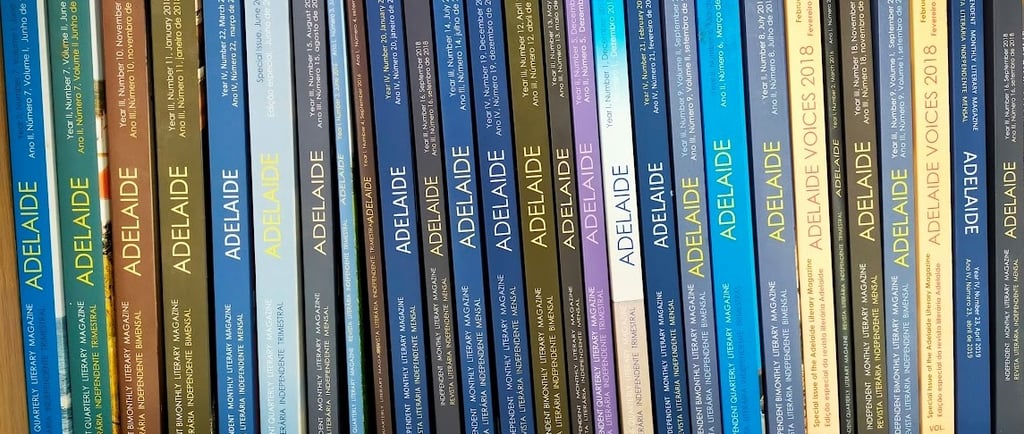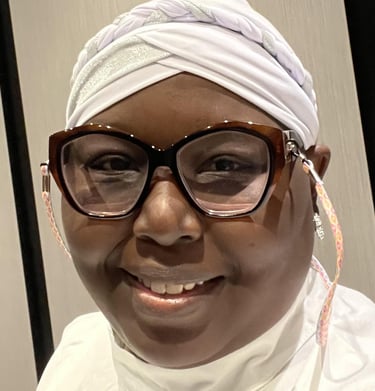THE COLLECTOR’S BARGAIN
ALM No.82, November 2025
SHORT STORIES


“He who bargains with the shadow gives his soul for a breath; yet the breath itself is chained to the cries of the living.”
PART I – THE INTRUDER
It began with the sound of dragging — a slow, wet scrape across the hardwood floor. I thought it was one of my children coming in late until the door creaked open, and the figure appeared. His arms were short, twisted, and his chest rose and fell as if every breath cost him years of life.
He spoke in a rasp that made my blood still. “I need fifty thousand dollars. Your man has it. Until I get it, you stay.”
Days bled together. We tried to keep calm, to reason, but the whispers began. People stood outside the house at night, smiling too long, eyes gleaming. He called them his partners — witches, warlocks, and vampires. He had sold his soul, he said, to buy more time from death.
PART II – THE BARGAIN
After that night, sleep never returned to our home. Every shadow seemed to breathe, every whisper a warning too soft to understand. The man’s coughs came in intervals—wet, sharp, and ragged—but each fit left him looking stronger, not weaker. It was as if the sickness fed him instead of breaking him.
He no longer asked for money. He just watched us. Sometimes he’d whisper things that made no sense—numbers, names, places I’d never been. At sunrise, he would rise from the sofa, go to the window, and whisper to the watchers outside.
That night, we planned our escape. At midnight, I went to the living room. He was sitting in the dark, facing the window where the watchers stood. Simeon crept up behind him, moving quietly as prayer, but the man turned just in time. He lunged, knocking Simeon into the wall. The crash woke Mariah and Jordan. For a second, the house erupted into panic. I grabbed the heavy brass lamp and swung with all my strength. It cracked against the back of his head, and he fell.
We didn’t stop to see if he was dead. We ran into the humid Georgia night. But as we reached the edge of the property, the world changed. The air thickened, colors dulled, and sound warped. I turned to look at my home, and figures were crawling out of the shadows—faces of people from town, neighbors, the mailman, the pastor’s wife—each one moving wrong, joints bending backward, mouths open in silent screams.
We ran. Past the trees, down the cracked road toward the old mill. By dawn, we found shelter—a sagging house at the edge of the woods, long abandoned. The paint peeled in strips like dead skin. The windows were broken. Inside smelled of dust and rot, but it was shelter.
We turned the house into a fortress. We baked pies, cookies, biscuits—everything that once meant home and safety. But this time, our ingredients were not love. They were on defense. Every dish laced with household chemicals—bleach, cleaner, medicine. Death disguised as comfort.
At dusk, we set the food on the porch. The watchers appeared, drawn by the scent, faces glowing faintly in the dim light. The first to bite convulsed, black veins spreading beneath their translucent skin. One by one, they fell, dissolving into smoke. But behind the smoke, more shadows gathered—hundreds, maybe thousands—watching their fallen vanish. They understood. They would not eat again.
PART III – THE SIEGE
For two days after he vanished into the trees, we lived as though reprieved from a nightmare. But there was a stillness to that calm — not peace, but the kind that waits for something to die.
We sealed the house as best we could. We prayed before every meal. We ate little, slept less. Then came the tapping. At first gentle — like branches brushing glass. But by the second night, it grew rhythmic, deliberate. Every window, every door, every wall. I pressed my ear to the wood and heard voices murmuring, overlapping: “Open, open, open.”
The kitchen smelled wrong — not rotten, not fresh, just wrong, like sweetness decayed. I found the pies still sitting on the counter, but now there were handprints pressed into them. Not ours. Too small, too many.
That afternoon, Jordan disappeared. When he returned, his voice was not quite his own. “They’re waiting,” he said. “For him to finish dying.”
That night, I dreamed of the man. He stood at the edge of the woods. “Do you think prayer breaks the bargain?” he asked. “Only another sacrifice can unwrite it.” When I woke, my hand was bleeding. Three perfect circles burned into my palm.
On the seventh day, Simeon stopped breathing. The man stood beyond the window — whole, radiant. “Your prayers fed me, Aries. Faith is the sweetest sacrifice.” The house began to burn. “The debt is paid,” he said. “But not by me.” I felt something tear inside my chest — a pain like a second heart ripping open. Then came light — fierce, blinding — and everything went silent.
PART IV – THE RECKONING
The morning after the fire, the air was heavy with ash and silence. I sat in what was once the kitchen, my dress torn and burned, the Bible beside me turned to soot. The man was gone. But his absence didn’t feel like victory. It felt like an inheritance.
The first time I heard the whisper, I thought it was the wind through the boards. But then it spoke my name. It was Mariah’s voice. Then Simeon’s. “We’re free,” they said together. But their voices sounded rehearsed. Behind them, something vast stirred in the shadows. They weren’t free. They were his now.
Days passed. I began to dream in fragments. In one, I saw the Collector beneath the pecan tree. “You understand now,” he said. “Every prayer has a price.” He reached out. “Take the mantle. You are the Collector.” I woke with the taste of ash and blood.
I tried to leave Eastman. The road looped back to the same burned clearing. Strangers wandered near the ruins. When I called, they looked through me. Then one night, a man in a torn jacket came to the clearing. He was desperate. I heard myself speak: “There’s a way. But there will be a price.” I marked him without meaning to. The mark burned into his skin — three circles intertwined.
“The devil doesn’t always take the wicked,” I whispered later. “Sometimes, he takes the ones who tried too hard to be good.”
It’s been months — or centuries. I no longer age. I no longer sleep. The road outside my burned home still turns strangers my way. I tell them the same thing the Collector told me: “There’s always a way.” And when they ask the price, I smile.
The price is never gold. It’s always love.
Sometimes I hear Mariah’s laughter in the distance, or see Simeon’s shadow among the trees. Maybe they’re watching. Maybe they’re warning. Maybe they’re waiting for me to stop. But I can’t stop. The contract runs deeper than faith, older than time.
When the moon rises full and red over Eastman, I feel the hearts of the desperate beating like drums in the dark, calling to me.
And I answer.
Because I am mercy.
And I am debt.
And I am the Collector.
Demetria Mitchell is the author of The Prodigal Daughter of a King and Silent Whispers in the Deep, two inspiring works that reflect her deep faith, resilience, and storytelling passion. She has also contributed to the uplifting anthology Angels Working Overtime, where her words continue to touch hearts and encourage others. Residing in Eastman, Georgia, she is a proud mother of three and a loving grandmother to seven beautiful grandchildren. Beyond writing books, she also channels her creativity into designing journals and calendars that inspire reflection, gratitude, and purpose in daily life. Her writing journey is a testament to perseverance, faith, and the power of sharing one’s story to uplift others.

